|
Last week I had a little change in profession. Instead of advisor and coordinator I became a teacher. Together with colleagues Monti from Forestry and Zidane from Wildlife and Parks we went to four secondary school to give lessons about environmental issues. I was lecturing about the effects of deforestation and wrong land-use in Malawi. The kids (ages 13-17) were all members of environmental or wildlife clubs and came to the lessons voluntary. In two days we gave four lectures on four schools. We reached a total of 132 students. And we are not planning to quite after these two days. More will follow!
0 Comments
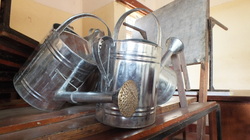 It’s time for an update about our achievements in Nsanje. The last few weeks I spend a lot of time attending and organizing workshops and facilitating workshops. Enjoyable because I love presenting and organizing these kind of activities! And after all, sharing information is the most important part of my task in Nsanje. When I started this project I was warned that the local people often only come to workshops and trainings if they receive money and materials. And that they would not be interested in information and training. After listening to these kinds of stories I was a bit worried about my project. Since the WATERS project is all about information sharing and capacity building, and not about giving away money and materials. But the past few months proved the opposite to me. The local people I am working with are amazing. They are coming to every workshop I organize. They listen, discuss, take notes and ask for more information. Back in their own villages they pass on the lessons learned to their village members and even write small reports about these gatherings to me. The reports are handwritten and in Chichewa of course, so I need a translator to read them. But the fact they pass on the message to each other is so valuable. It shows to me that they are serious about the project and eager to learn. The subject we handled during the workshops so far were about climate change, environmental issues, cause and effect, cooperation and the importance of having a balanced ecosystem to reduce climate related hazards. In the future we are planning to continue these subjects and add workshops on taking care of trees and the writing of management plans. Because I was able to save some of my budget, I decided to use this a bit different than I did all the former workshops. In Nsanje, deforestation is a big problem, and the committees I’m working with have a huge responsibility to fight this. But they barely have proper materials or funding to achieve this. I decided to help them out a bit with some much needed materials. My first approach turned out to be a bit of a disappointment to me. I invited the committees for a meeting and asked them for what purpose they wanted to use the money. Positive outcome was that they all immediately agreed to spend the money to strengthen their tree nurseries. But after that the meeting turned out to be a wakeup call for me. The committees are not used to create plans together and after 2 workshops talking about cooperation they obviously were not ready to take it to this level yet. I was moving to fast for them. At the end of the meeting they had a plan which would cost me 2 million Kwacha (total budget being 300.000, about 900 US dollar). Instead of deciding on basis of priority or current resources of the committees, they all wanted to have exactly the same, no matter what their individual targets were. I was disappointed, but my colleagues assured me that this was already a huge step for them. Still it made me realize how much work there is to be done and what a huge change of mind set is necessary to make this work. Eventually my colleague Mr Mwafumu and I spend a day on our motorbikes to make an inventory of all the 14 tree nurseries in my catchment area. What were there targets, which materials do they already have and how many people were active in the committee? With the results of this inventory we decided to buy them basic material like water cans, pails and rakes depending on the targets and available resources of each committee. On the 29th of June we organized another workshop on managing tree nurseries. At the end of the workshop we distributed the materials to the local committees. With these materials, some coaching of the District Council and the enthusiasm of the local committees we can now grow 115.000 trees. These trees will be used for the reforestation of my project area, the Nyamadzere River. This is one of the most vulnerable area’s to flash floods and soil erosion. The planting of trees will be just after the start of the raining season in October/November. And with a little bit of help the committees can use the materials to grow even more trees coming year. 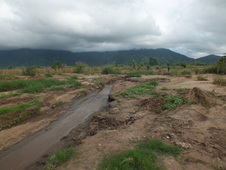 While I’m in Malawi, a huge part of my work will be the coordination of the WATERS-Project (Waters Futures: Towards Equitable Resource Strategies). WATERS is an initiative of VSO and the Scottish Government, which is also funding the project. The goal of the project is to support and train communities in the four most vulnerable districts of Malawi on how to use the benefits of the ecosystem in order to decrease the effects of erratic weather like heavy rain and dry spells. This is done by capacity building and ecosystem service measurements. The WATERS-project is focused on ten Village Nature Resources Management Committees (VNRMC’s) in each district by training and supporting them in applying an Ecosystem Service Approach (ESAp). Al ten VNRMC’s will be linked together by a mutual threat and will have to work together to mitigate it. The VNRMC’s are registered committees who have a responsibility in their village on nature, agriculture and climate change. The climate change coordinators will support and train the VNRMC’s in different measures, for example:
As example for the implementation of ESAp in the districts, we make use of the experiences and lessons learned at the Lake Chilwa Basin project in the east of Malawi. In this area the organization LEAD-SEA has been working with ESAp and VNRMC’s with success. To evaluate this project, a VSO-colleague of us, is placed at LEAD-SEA. He is providing us with much needed information on the practical implementation of ESAp. Another source of information is the Scottish James Hutton Institute. They will provide us with the theoretic knowledge about ecosystems and climate change during the whole project. The four selected vulnerable districts in Malawi are Nsanje, Chikhwawa, Salima and Karonga. In each district VSO has placed 1 climate change coordinator. I’ll be working in Nsanje District in the southern tip of Malawi, the hottest and poorest district of Malawi. The top ten priorities in this district are: 1) Deforestation 2) Erosion 3) Siltation 4) Flooding 5) Dry spells 6) Water quality and quantity (salinity) 7) Forest fires 8) Poaching 9) Water catchment degradation 10) River bank cultivation These priorities are causing or amplifying each other and other threats like flash floods, drought, the contamination of (drinking) water, water borne diseases (flooding), the wash away of crops and infrastructure, loss of biodiversity, and shortage of energy sources like fire wood. My employer is the Council District of Nsanje. This is comparable with a Provincial Government in the Netherlands. Next to the practical implementation of the project we are also linking the Council District with the communities and NGO’s working on climate change related projects in the district and teaching about ecosystem and climate change on schools in the district. Last but not least a volunteer from VSO is placed at the organization of CISONECC (Civil Society Network on Climate Change) in Malawi. She will organize the communication, promotion, media attention etc. of the WATERS project and the successes made. The partners of the WATERS-project are: · Voluntary Service Overseas (VSO); · Ministry of Local Government and Rural Development (MLGRD); · Centre for Environmental Policy and Advocacy (CEPA); · LEAD Southern and Eastern Africa (LEAD-SEA); · James Hutton Institute (JHI). The whole project will run from February 2013 until March 2015. I will stay in Nsanje from February 2013 until February 2014. After this period another VSO volunteer will take over. Last week (Sunday the 3th of February) I arrived (tired, but with no troubles) in Lilongwe, capital city of Malawi. VSO picked me up from the airport and the rest of the week I received an In Country Training with lessons en presentations about the Malawian culture, politics, language, VSO policies, safety regulation and practical stuff like using the public transport over here (quit a challenge I can tell you…). Together with me there were 6 other volunteers in the ICT from all over the world. 3 Philipinas who also are going to work on the climate change project, a Indonesian ICT guy, a Ugandan guy who works on HIV and AIDS education and a German, who will be working on communication. The week was quit tiresome with lessons for 8 am till 6 pm and in the evening lot’s of social events and meetings. But it was great fun as well!!
In this week we also received more information about the programme we (me and the Philipinas and later this month also and Indonesian woman and Florent a French guy will join us) will be working on. In short. This is what it is all about: We will work on the WATERS project (Waters Futures: Towards Equitable Resource Management). The project is funded by the Scottish Government through the Climate Justice Fund (CJF). The project goal is to link local government, civil society and community to enable equitable climate proof intergrated water management in the four priority districts of Malawi: Karonga, Salima, Chikhwawa ans Nsanje. The project will apply an Ecosystem Servive Approach (ESAp) for water resources management which will be used, and developed, through participatory scenario building for climate adaption in consultation with local communities and stakeholders I am be based in Nsanje, Brenda (Philipines) is based in Salima, Imelda (Philipines) in Chikhwawa, the Indonesian in Karonga and Doris (Philipines) and Florent (French) are based at LEAD-SEA and CISONECC. Two cooperating NGO’s responsible for the documentation and communication of the project. The stakeholders of the project are: - Ministry of Local Government and Rural Development (Malawian government); - Centre for Environmental Policy and Advocacy (CEPA, NGO); - LEAD Southern and Eastern Africa (LEAD-SEA, NGO (CISONECC is part of LEAD)); - James Hutton Institute (Scottish Institute who will provide resources and information). The Malawian government is sponsored by the NCCP (National Climate Change Programme). Our roles in the 4 Districts is to make a profile of what is going on with climate adaptation and mitigation in your District. In Malawi there are a lot of (small) NGO’s working, without communication amongst each other. The sharing of information is therefor our overall focus. We have to find out what grass-rooted project are running or starting and connect these together. We actually will be like a spider in a web. Next to this we are going to give and organize lessons, trainings and meetings about ecosystems, climate change and the consequences of this for environment and biodiversity. At the end (around 2015…) all our information and reports will be used to make a Climate Change policy for Malawi. VSO has a leading role in making this policy. Well, that is what I will be doing for the coming year… The first challenges have already arrived: 2 or 3 powercuts a day, heavy rains (which cause flooded and destroyed roads), no paper or toner for the printers, slow internet and locals who only speak the local language (Chichewa). But happily, I do have nice Malawian colleagues to work with :-). Tionana!!! (See you) Voor degene die mij persoonlijk willen volgen: mijn waarbenjij.nu pagina is bij deze online! (http://marijelangstraat.waarbenjij.nu/). Op deze pagina zullen (naast het werk) ook de meer persoonlijke verhalen komen. Natuurlijk zal ik ook regelmatig op de By Nature blog een up-dat plaatsen, maar deze zal ik meer op het werk gericht houden. Maar iedereen die alles ook op een meer persoonlijk vlak wilt volgen is van harte uitgenodigd om een kijkje te nemen op waarbenjij.nu en zich aan te melden voor de mailing list!
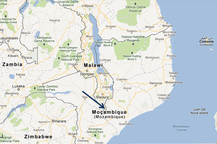 Ik heb het een paar dagen geleden al via social media de wereld in gestuurd: By Nature goes Malawi! Sindsdien krijg ik een hoop vragen hoe ik daaraan kom en waarom ik het ga doen. Het is immers niet zomaar iets. Ik ben geen expat die in luxe gaat leven, maar een 'vrijwilliger' die op basis van een onkosten vergoeding (net genoeg om van rond te komen in Malawi) met en tussen de plaatselijke bevolking gaat leven en werken in 1 van de armste delen ter wereld. Het begon in januari 2012. Via een vriendin hoorde ik dat VSO (zie de page about VSO, onder Malawi) ecologen/klimaatdeskundigen zoekt. Na wat contact heen en weer mijn CV opgestuurd. Eigenlijk met niet al te veel verwachtingen. Eerst moet je maar eens door de assesments heen komen en dan moet er ook nog een placement komen die je aanspreekt (en die jou ook zien zitten). Na wat mislukte aanbiedingen in Zuid-Oost Azie, kwam in juni dit jaar de vraag of ik interesse had ik een project in Malawi. Daar moest ik toch echt even over nadenken. Ik ben nog nooit in Afrika geweest en heb eigenlijk ook nooit echt een binding met dat land gehad. Ik zag een hoop ellende van corruptie, HIV en burgeroorlogen voor me. Na een aantal gesprekken met mensen die er geweest waren en een hoop bureau onderzoek heb ik de knoop door gehakt: Ik ga het doen. Helaas mocht het in eerste instantie toch niet zo zijn. De fundraising van het project kwam niet rond en na een poos toch besloten dat het project niet door zou gaan. Tot eind oktober. Totaal onverwacht kwam een mailtje dat de financiering rond was en of ik alsnog wilde komen. Startend vanaf februari 2013. En tja, na toch nog enige twijfel was de knoop toen best vlot doorgehakt... Waarom ik het ga doen? Ik moet bekennen dat het voor mij toch echt een avontuur is. Een jaar lang in zo'n andere cultuur en onder ronduit primitieve omstandigheden werken lijkt mij een geweldige ervaring. En tegelijkertijd help ik er ook nog andere mensen mee. Een betere combinatie bestaat er in mijn ogen niet. Dat het niet makkelijk gaat worden weet ik heel goed. Ik zal de Afrikaanse werkinstelling vervloeken, een hoop armoede zien, mezelf tegenkomen en behoorlijk heimwee krijgen. En toch.. Naast dat zal ik ook een andere cultuur leren kennen, nieuwe mensen ontmoeten, op mezelf aangewezen zijn en zo verschrikkelijk veel leren. Ondanks dat ik het ongelooflijk spannend vindt, heb ik er zin in!! Wat het project allemaal inhoudt en wat Malawi voor land is ga ik hier niet herhalen. Die informatie staat allemaal onder de page Malawi op mijn site. Dus indien je geïnteresseerd bent: lees het eens op je gemak door. De sites zullen de komende tijd nog regelmatig wijzigen. Momenteel is ook voor mij nog niet alles duidelijk en veel zal ook pas echt duidelijk worden op het moment dat ik in Malawi ben... Overigens is het land politiek stabiel. Ik zal dus niet in een burgeroorlog o.i.d. belanden. Neemt niet weg dat de medische zorg in het land ronduit belabberd is, ziektes als malaria, tuberculose, HIV, dengue en weet ik niet wat zijn de dagelijkse gang van zaken en Nsanje leeft al een jaar of 20 op de rand van een hongersnood.... En nu begint het grote voorbereiden. Informatie verzamelen en lezen over Malawi en de (klimaat)problematiek die er speelt, publiciteit en bekendheid geven aan het project, medische keuringen, vaccinaties, verzekeringen en belasting, ik ben nog wel even zoet. En nog even een leuk spaarpotje op proberen te bouwen, want als ik daar eenmaal ben wil ik 1: ook wel wat van het land zien en 2: graag ook nog iets direct voor de lokale bevolking doen. Het project waar ik aan ga werken is namelijk iets waarvan het nog jaren zal duren voor er daadwerkelijk resultaat zichtbaar zal zijn. En tja, aangezien ik toch enigszins resultaat gericht ingesteld ben wil ik ook wel iets direct zien. Daarom heb ik het plan opgevat om vooraf in Nederland geld in te zamelen waarmee ik lokaal iets voor de lokale bevolking kan doen. Wat precies? Ik moet eerlijk bekennen dat ik dat nog niet helemaal weet. Mijn plan is momenteel om eerst een half jaar om me heen te kijken om te bepalen wat de mensen daar nu daadwerkelijk hard nodig hebben. Om daarna samen met de locals iets op te zetten. Dat kan variëren tot het faciliteren van schoolmateriaal voor een school tot het helpen van boeren aan betere landbouwwerktuigen of misschien wel het helpen van beginnende ondernemers. Of (afhankelijk hoeveel ik bij elkaar krijg) misschien wel meerdere projecten... Meer informatie volgt!!! (en mensen/bedrijven die mij hierin willen helpen zijn meer dan welkom!) Als ik op een verjaardag of feestje zeg ecoloog te zijn en in/met natuur werk , krijg ik regelmatig reacties als: "Denk je nou echt dat omringende landen zoveel voor natuur doen als Nederland?" en "Nederland is altijd het braafste jongetje van de klas" en ga zo maar door. Uit een vergelijking van de daadwerkelijk vastgestelde milieuverontreinigingen en kwaliteit van de natuur (dus niet het beleid) in Nederland met de andere EU-landen door Natuur en Milieu (www.natuurenmilieu.nl) blijkt dat dit alles behalve zo is. Uit het rapport "Ranking the Stars, Nederland in vergelijking met andere Europese lidstaten" blijkt dat Nederland op het gebied van milieu, natuur en klimaat slecht scoort in vergelijk met de rest van Europa! Onderstaand een grafiekje uit het rapport "Ranking the Stars", waarin de gunstige staat van instandhouding van Nederlandse Natura 2000 gebieden weergegeven wordt. Hierin is te zien dat volgens Natuur en Milieu alleen Ierland, Belgie en Spanje slechter scoren....
Ook op het gebied van klimaat komt Nederland er volgens Natuur en Milieu niet goed vanaf: "De uitstoot van broeikasgassen in Nederland is boven het Europese gemiddelde en de trend is stijgend. Nederland haalt het Kyoto-doel alleen door aankoop van buitenlandse emissierechten". Het gehele rapport is via deze link te lezen: http://www2.natuurenmilieu.nl/media/278298/20111012-natuur_milieu-rapport-rankingthestars.pdf Vaak wordt geprobeerd de waarde van natuur te vertalen naar een economische waarde. Misschien ook wel logisch, aangezien we nu eenmaal in een wereld en tijd leven waarin alles om de economie draait. Op basis van de economische waarde wordt dus bepaalt of iets wel of niet waardevol is. Maar is dit wel terecht? En is dit uberhaupt wel mogelijk voor natuur. Hoeveel discussie er ook over is, ik blijf er toch mijn twijfels hebben. Ondanks de vele onderzoeken die aantonen dat groen en/of natuur het ontstressend zijn, goed voor de huizenmarkt etc, lijkt het mij toch nog steeds een subjectief iets. En al helemaal niet iets wat in geld uit te drukken is. Of zoals Pavan Sukhdev stelt: " I hate the term “putting a price on nature,” because there’s more than that. It’s more about valuing nature. Nature has a value — it’s just that it’s not market-price value."
In de onderstaande links een lezing en een interview van en met Pavan Sukhdev over het "natuurlijk kapitaal": http://www.ted.com/talks/pavan_sukhdev_what_s_the_price_of_nature.html http://e360.yale.edu/feature/putting_a_price_tag_on_the_real_value_of_nature/2481/ Onderstaande is een artikel gepubliceerd door Natuurmonumenten.
De wereld op zijn kop. Dat vinden vrijwel alle Nederlandse natuurorganisaties van het wetsvoorstel natuur van staatssecretaris Bleker. In dit voorstel krijgen economische belangen voorrang boven het beschermen van natuur. Volgens vrijwel alle Nederlandse natuur-, landschaps- en dierenwelzijnsorganisaties, die op 12 januari bij een overleg in Den Haag met staatssecretaris Henk Bleker zijn, is dat meer dan voldoende reden om de wet terug te sturen naar de tekentafel. Schade aan de natuur Een natuurwet moet doen waarvoor die bedoeld is, namelijk in het drukbevolkte Nederland zorgen dat de natuur robuust wordt beschermd. In de nieuwe natuurwet van staatssecretaris Bleker ontbreekt dat gevoel voor verantwoordelijkheid. De nieuwe wet voldoet niet aan de internationale afspraak dat de achteruitgang van biodiversiteit tot staan moet worden gebracht. Er bestaat een reëel risico dat er onomkeerbare schade wordt toegebracht aan de Nederlandse natuur. Uitkleden De nieuwe Wet Natuur is bedoeld om drie goede natuurwetten (Natuurbeschermingswet, Flora- en Faunawet en Boswet) samen te voegen. Dit streven naar een eenvoudige en duidelijke wet hebben natuurorganisaties altijd gesteund. Met de ontwerp Wet Natuur gaat Bleker echter een geheel andere richting uit, namelijk het beschermingsniveau systematisch uitkleden tot het Europese minimum. Negatieve reacties Het concept wetsvoorstel heeft inmiddels vele duizenden negatieve reacties van Nederlandse burgers opgeleverd. En afwijzing van de wet door nagenoeg alle Nederlandse natuurbeschermingsorganisaties. Plus wetenschappers en hoogleraren die geen enkele visie en onderbouwing in het nieuwe wetsvoorstel kunnen ontdekken. De Nederlandse natuur-, landschaps- en dierenwelzijnsorganisaties dringen er tijdens het overleg met Bleker dan ook sterk op aan om dit wetsvoorstel drastisch te herzien. Bron: http://www.natuurmonumenten.nl/content/nieuwe-natuurwet-bedreigt-nederlandse-natuur |
Marije LangstraatNatuurliefhebber en oprichter By Nature Archives
Juni 2014
Categories
Alles
Categories |

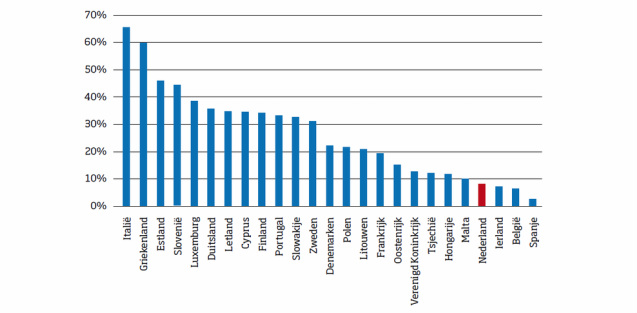
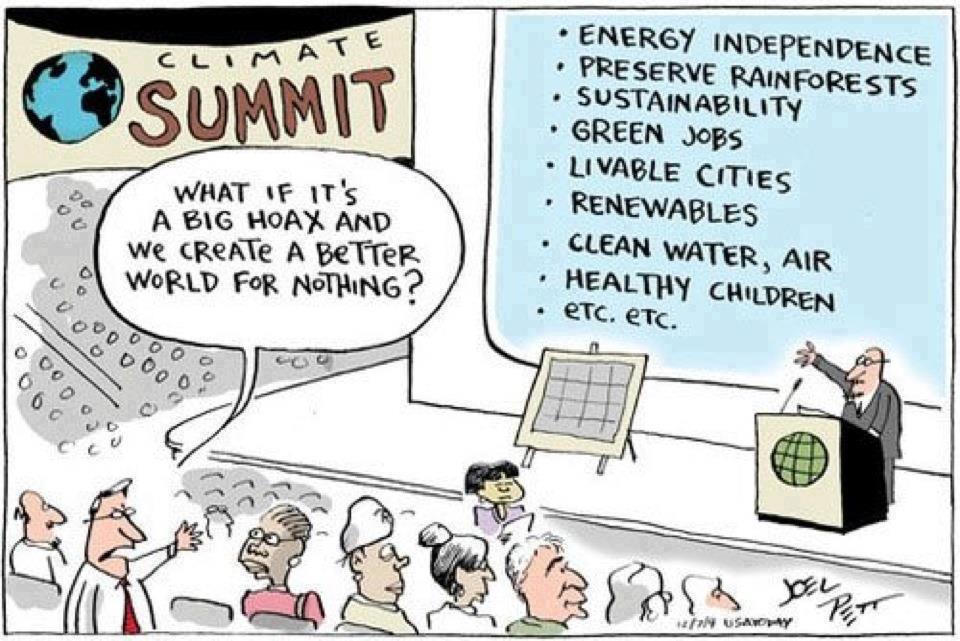

 RSS-feed
RSS-feed
